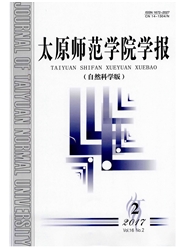

 中文摘要:
中文摘要:
传统的以末端治理为主的雨洪管理措施已不能满足城市健康发展的需要,城市发展需要具有可持续性的雨洪管理策略.低影响开发雨洪管理(LID)通过模拟场地开发前的水文状况,采用分散、多样、小型、本地化的技术从源头上储存、渗滤、蒸发以及截流雨水,最大程度保护开发改造地区的水文情势,减少负面环境影响.文章概述归纳了国外对该管理策略的研究进展.学习借鉴这样的新策略,对提高改善我国城市新区开发和旧城改造的雨水资源利用与管理是十分有意义的.
 英文摘要:
英文摘要:
The traditional end-of-pipe stormwater management could not keep up with the demands of a healthy urban environment. Low Impact Development (LID) provides new econom- ically and environmentally sustainable tools to manage stormwater. It uses many decentralized micro-scale at the source control techniques to manage runoff. By means of infiltration, evapo- transpiration,and reuse of rainwater, LID techniques manage water and water pollutants at the source and the result is a landscape that is functionally equivalent to predevelopment hydrologic conditions that generates less surface runoff, less pollution, less erosion and damage to rivers, streams, lakes, coastal waters, and ground water, therefore, protect the local ecosystems. The arti- cle reviewed current research on low impact development stormwater practices. It will be very helpful to improve the stormwater management in newly developed or retrofitting existing highly urbanized areas by studying this new strategy.
 同期刊论文项目
同期刊论文项目
 同项目期刊论文
同项目期刊论文
 Multi-variable and multi-site calibration and validation of SWAT in a large mountainous catchment wi
Multi-variable and multi-site calibration and validation of SWAT in a large mountainous catchment wi Modelling Impacts of Land Cover Change on Critical Water Resources in the Motueka River Catchment, N
Modelling Impacts of Land Cover Change on Critical Water Resources in the Motueka River Catchment, N Reply to comment on Cao W, Bowden BW, Davie T, Fenemor A. 2006. 'Multi-variable and multi-site calib
Reply to comment on Cao W, Bowden BW, Davie T, Fenemor A. 2006. 'Multi-variable and multi-site calib 期刊信息
期刊信息
